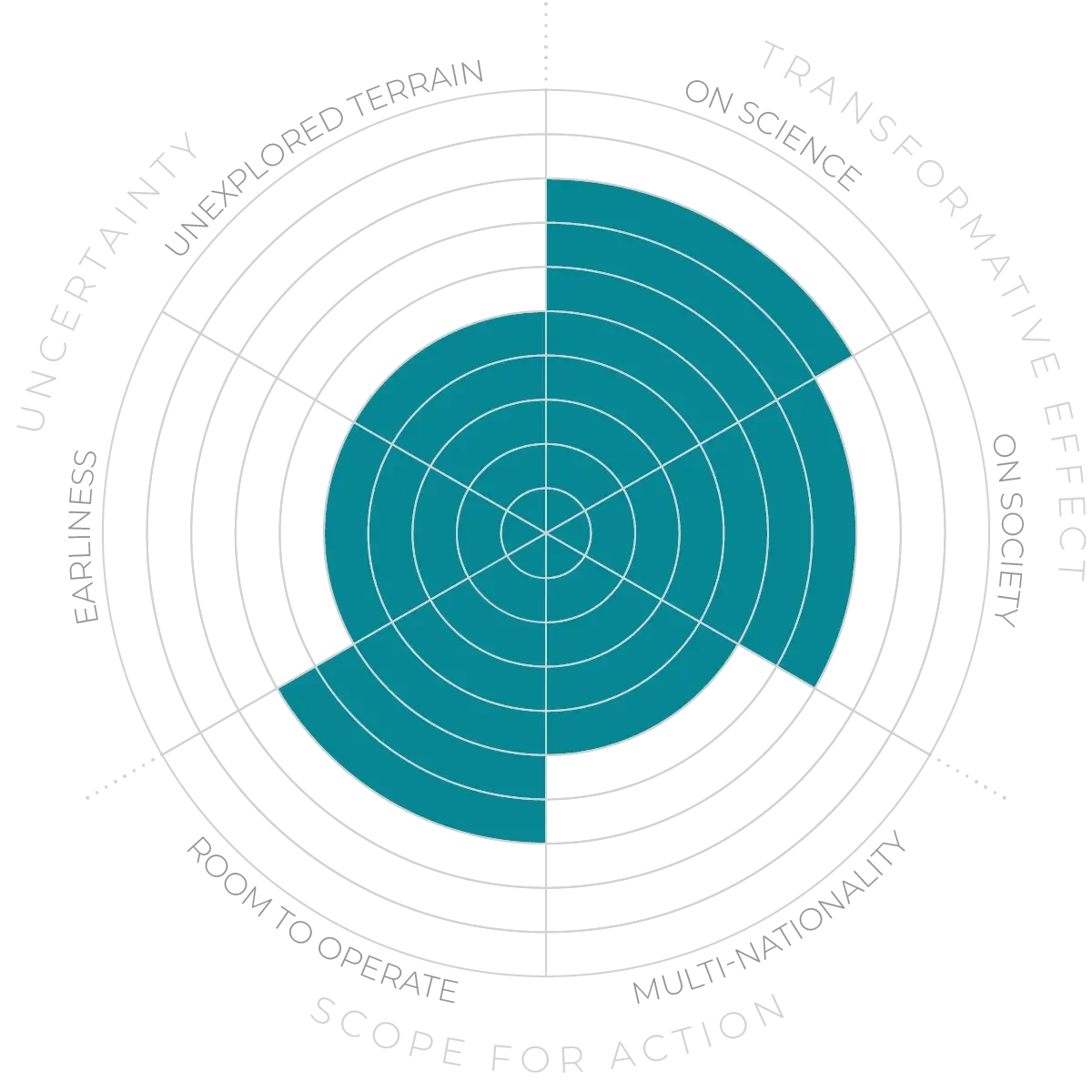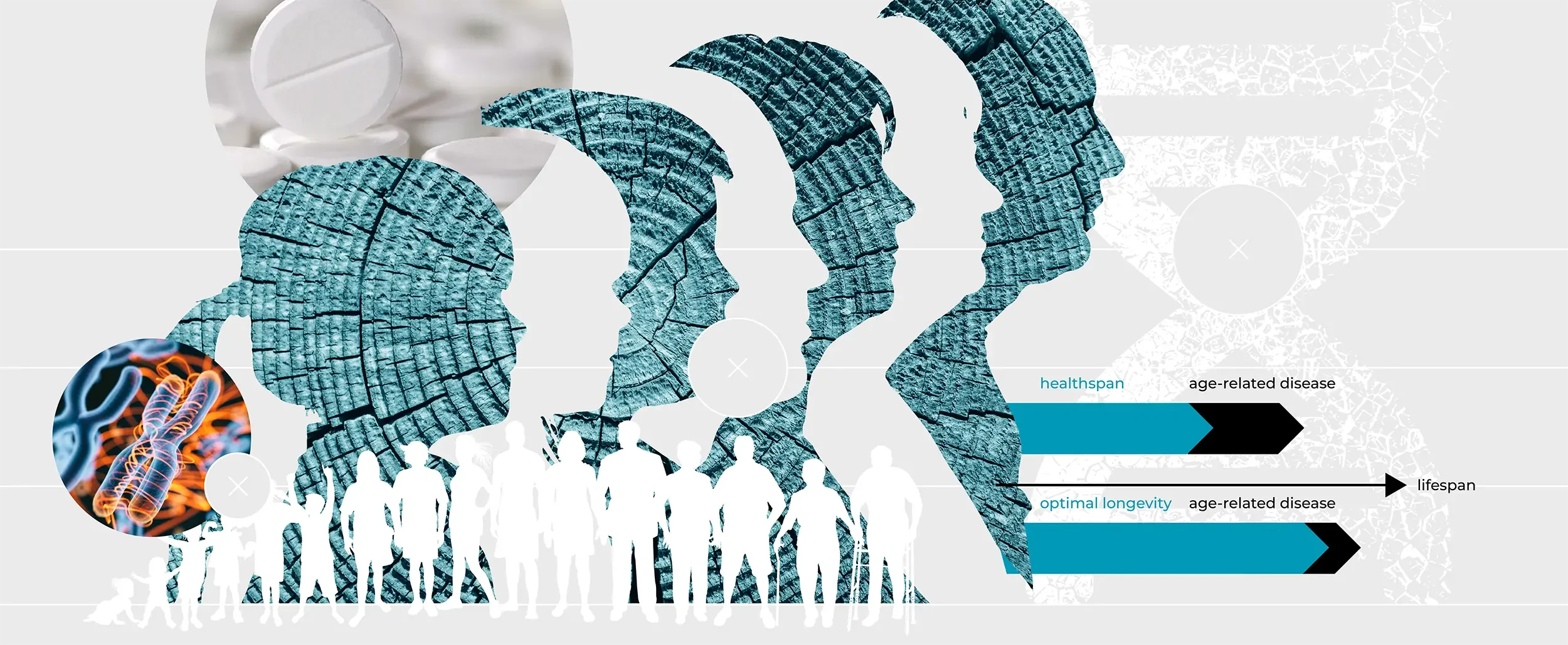Future Horizons:
10-yearhorizon
Ageing is understood as a disease process
25-yearhorizon
A better understanding of why we age
Understanding the mechanisms of how we age could lead to interventions that can alter them, which could lead to “compression” of the period of disability relative to age — essentially delaying its onset so people stay healthy until end of life. Benefits of insights gleaned from this study won’t accrue only to old people. Finding ways to mitigate these processes is important across the life course. Ageing processes get under way the moment we are born and their fingerprints are being found in surprising places, from pregnancy complications to childhood cancer treatment to the long-term effects of prophylactic HIV drugs.
Research is currently illuminating the workings of some of these ageing mechanisms, including age-related build-up of defective proteins, dwindling of adult stem-cell reserves, transcriptional slowdown3 and an age-related increase in the number of senescent cells — which, among other events, drives an increase in chronic inflammation. In all, 12 interrelated hallmarks of ageing have now been identified.4 Additionally, there are genetic factors: recent research has identified a gene in naked mole rats that extends both lifespan and healthspan in transgenic mice, for example.5 There are also suggestions that gut-microbe composition matters, as it changes differently in healthy versus unhealthy ageing.6 The main goal is to understand how all of these factors are connected to chronic disease, and how these in turn are connected into the central system that regulates the ageing process.
Fundamental Geroscience - Anticipation Scores
The Anticipation Potential of a research field is determined by the capacity for impactful action in the present, considering possible future transformative breakthroughs in a field over a 25-year outlook. A field with a high Anticipation Potential, therefore, combines the potential range of future transformative possibilities engendered by a research area with a wide field of opportunities for action in the present. We asked researchers in the field to anticipate:
- The uncertainty related to future science breakthroughs in the field
- The transformative effect anticipated breakthroughs may have on research and society
- The scope for action in the present in relation to anticipated breakthroughs.
This chart represents a summary of their responses to each of these elements, which when combined, provide the Anticipation Potential for the topic. See methodology for more information.



